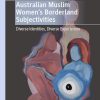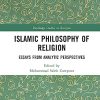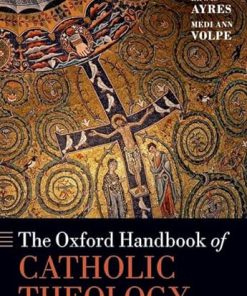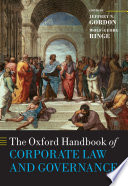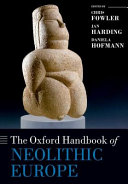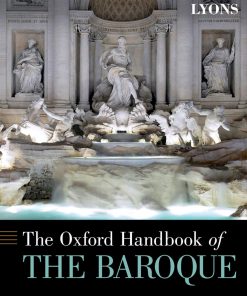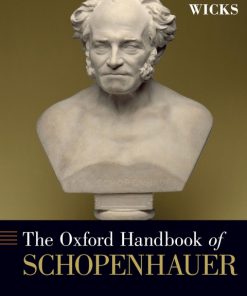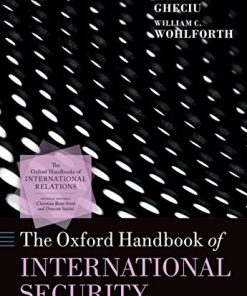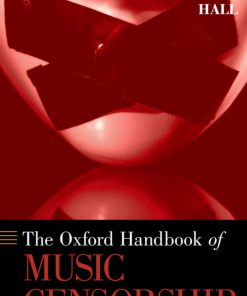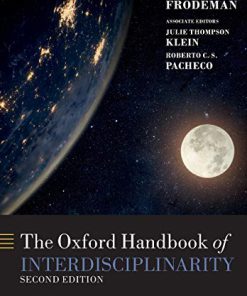The Oxford Handbook of Qur’anic Studies 1st edition by Mustafa Shah, Abdel Haleem ISBN 0199698643 9780199698646
$50.00 Original price was: $50.00.$25.00Current price is: $25.00.
The Oxford Handbook of Qur’anic Studies 1st edition by Mustafa Shah, M. A. S. Abdel Haleem – Ebook PDF Instant Download/Delivery: 0199698643, 978-0199698646
Full download The Oxford Handbook of Qur’anic Studies 1st Edition after payment
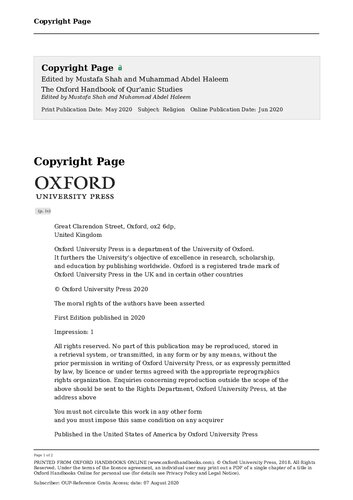
Product details:
ISBN 10: 0199698643
ISBN 13: 978-0199698646
Author: Mustafa Shah, M. A. S. Abdel Haleem
The Oxford Handbook of Qur’anic Studies 1st Table of contents:
Part I: The State of Qur’anic Studies
- Academic Scholarship and the Qur’an
- Modern Developments in Qur’anic Studies
- The Popularizers
- The ‘Modernizers’
- The ‘Scientists’ or ‘Academics’
- The Qur’an’s Audience
- Negative Views
- Islamic Origins and the Qur’an
- Introduction
- Theoretical Issues: Origin(s), Islamic and Otherwise
- Methodological Issues: The Nature of The Sources
- An ‘Orientalist’ Conclusion
- Qur’anic Studies: Bibliographical Survey
- Surveys and Introductions
- The Qur’an and Its Historical Environment
- Relationship Between Bible and Qur’an
- Historical and Material Development
- Formal Aspects
- Religious Themes and Motifs in the Qur’an
- Literary Aspects
- Exegesis (Tafsīr) and Practical Application
- Modern Muslim Reception
- Non-Muslim Reception
Part II: The Historical Setting of the Qur’an
- Late Antique Near Eastern Context: Some Social and Religious Aspects
- Historical Background
- Some Themes in Pre-Islamic Religion
- Conclusions
- The Arabian Context of the Qur’an: History and the Text
- History in the Qur’an
- History Outside the Qur’an
- The Linguistic Landscape of pre-Islamic Arabia: Context for the Qur’an
- The Linguistic Landscape of Arabia
- Writing and Literacy
- Development of the Arabic Script
- Multilingualism
- The Inscriptions and the Literary Background of the Qur’an
- Concluding Remark
- Qur’anic Exempla and Late Antique Narratives
- Introduction
- Textual Examples
- Potential Difficulties
- Concluding Remarks
- The Qur’an and Judaism
- Three Theses of Relationship
- The Qur’an on Judaism
- Contemporary Arabian Jews as Reflected in the Qur’an
- Torah and Covenant
- Qur’an Supportive of Jewish Ritual Practice and Piety
- Jewish Practices and Beliefs Reflected in the Qur’an
- Qur’an Condemning of Jewish Behaviour
- Conclusion: The Qur’an in a Phenomenology of Emergent Religions
- The Qur’an and Christianity
- Issues in Methodology
- The Qur’anic Corpus
- Jesus’ Name al-Masīḥ ʿĪsā ibn Maryam
- The Designation of Christians as Naṣārā
Part III: The Qur’an: Textual Transmission, Codification, Manuscripts, Inscriptions, and Printed Editions
- The Manuscript and Archaeological Traditions: Physical Evidence
- Copies Attributed to ʿUthmān
- Criteria of Identification
- The Ḥijāzī Evidence
- The Later Umayyad Muṣḥaf
- Inscriptions and Coins
- The Form of the Qur’an: Historical Contours
- The Role of al-Ḥajjāj Ibn Yūsuf
- The Period of Ikhtiyār
- The Corpus of Qur’anic Readings (qirāʾāt): History, Synthesis, and Authentication
- Early Academic Scholarship: Analysis of the Qirāʾāt
- Towards the Creation of an Archive
- Interpreting the Significance of Variae Lectiones
- Glorifying God’s Word: Manuscripts of the Qur’an
- Parchment Manuscripts From the First Centuries of Islam
- The Shift to Paper Codices in the Early Medieval Period
- Inscribing God’s Word: Qur’anic Texts on Architecture, Objects, and Other Solid Supports
- A History of Printed Editions of the Qur’an
- Western Europe
- Russia
- Muslim Orient
- New Information Technologies
Part IV: Structural and Literary Dimensions of the Qur’an
- Language of the Qur’an
- The Language of the Original Qur’an
- The 1970s: A Decade of Challenges
- Qur’an in Context: A 21st-Century Response
- Vocabulary of the Qur’an: Meaning in Context
- Philological Criticism in Context
- Developments and Strategies
- Outlooks and Prospects
- Qur’anic Syntax
- The Discontinuity of the Qur’anic Text
- The Coherence of the Text According to the Classical Tradition
- Modern Approaches
- Rhetorical Devices and Stylistic Features of Qur’anic Grammar
- Importance of Balāgha (Rhetoric)
- Stylistic Features
- Distribution of Related Material
- Inner-Qur’anic Chronology
- Qur’anic Chronology and Its Critics
- Conclusion and Open Questions
- The Structure of the Qur’an: The Inner Dynamic of the Sura
- Various Perspectives (Neuwirth, Zahniser, Cuypers, etc.)
- Discussions of Qur’anic Inimitability: The Theological Nexus
- Kalām Allāh and the Theological Nexus
- The Qur’an and the Arabic Medieval Literary Tradition
- Parody of the Inimitable
- Qur’an and Poetry
- Later ‘Imitations’
- The Qur’an and Arabic Poetry
- Poetry and Prophecy
- The Abbasid Period
- The Modern Period
Part V: Topics and Themes of the Qur’an
- Revelation and Prophecy in the Qur’an
- Biblical and Greek Concepts
- Qur’anic Concepts
- Doctrine and Dogma in the Qur’an
- God as One
- God as Creator and Ruler
- God’s Mercy
- Law and the Qur’an
- Positive Legislation
- Rules Governing Ritual
- Reception in Islamic Law and Legal Theory
- Qur’anic Ethics
- Discourses on Qur’anic Ethics
- Eschatology and the Qur’an
- Signs of the End Time
- The Hereafter
- Post-Mortem Existence
- Prophets and Personalities of the Qur’an
- Politics and the Qur’an
- Pre-Modern and Modern Perspectives
- Jihad and the Qur’an: Classical and Modern Interpretations
- Conceptualizations of Jihad
- Cessation of Fighting and Peacemaking
- Women and the Qur’an
- Woman’s Moral Agency
- Feminist Hermeneutics
Part VI: The Qur’an in Context: Translation and Culture
- Translations of the Qur’an: Western Languages
- Chronological Survey
- Theoretical Issues
- Translations of the Qur’an: Islamicate Languages
- Interlinear Works
- Commentary-Translations
- Presenting the Qur’an out of Context
- Contextual Importance
- Wujūh (Aspects of Meaning)
- Popular Culture and the Qur’an
- Qur’an in 21st-Century Africa/Asia
- Magic and Medicine
- The Western Literary Tradition and the Qur’an
- The Qur’an and the Canon
- Romantic and Postmodern Perspectives
Part VII: Qur’anic Interpretation: Scholarship and Literature of Early, Classical, and Modern Exegesis
- Early Qur’anic Commentaries
- Exegetical Designs of the Sīra: Tafsīr and Sīra
- Early Qur’anic Exegesis: From Textual Interpretation to Linguistic Analysis
- Early Medieval Tafsīr
- Medieval Exegesis: The Golden Age of Tafsīr
- The Corpora of Isrāʾīliyyāt
- Contemporary Tafsīr: The Rise of Scriptural Theology
- Twelver Shīʿī Exegesis
- Ismāʿīlī Scholarship on Tafsīr
- Ibāḍī Tafsīr Literature
- Sufi Commentary: Formative and Later Periods
- Theological Commentaries
- Philosophical Commentaries
- Aesthetically Oriented Interpretations of the Qur’ān
- Tafsīr and Science
- Classical Qur’anic Hermeneutics
- Sunnī Hermeneutical Literature
- Modern Qur’anic Hermeneutics: Strategies and Development
People also search for The Oxford Handbook of Qur’anic Studies 1st:
the oxford handbook of ai governance
the oxford handbook of archaeological ceramic analysis
borrow the oxford handbook of indian foreign policy
oxford handbook for the foundation programme pdf
the oxford handbook of greek and roman art and architecture
Tags:
Mustafa Shah,Abdel Haleem,Oxford,Handbook,Qur’anic,Studies 1st
You may also like…
Religion & Spirituality - Christianity
The Oxford Handbook of Catholic Theology (Oxford Handbooks) Lewis Ayres 0191612154 9780191612152
Politics & Philosophy - Government & Politics
The Oxford Handbook of Corporate Law and Governance Oxford Handbooks Gordon
History - Archaeology
The Oxford Handbook of Neolithic Europe (Oxford Handbooks) Chris Fowler
Arts - History & Criticism
The Oxford Handbook of the Baroque Oxford Handbooks 1st Edition Lyons 019067847X 9780190678470
Politics & Philosophy - Ancient & Medieval Philosophy
The Oxford Handbook of Schopenhauer (Oxford Handbooks) 1st Edition Robert Wicks


